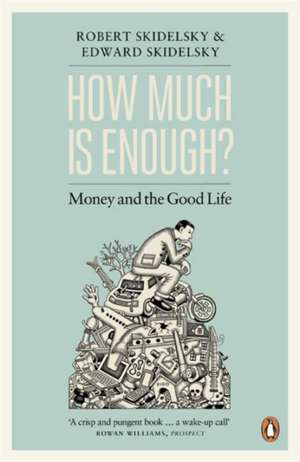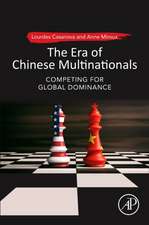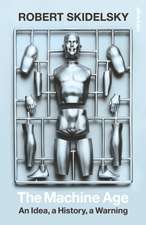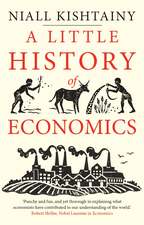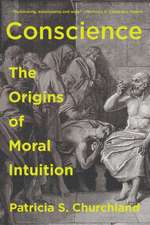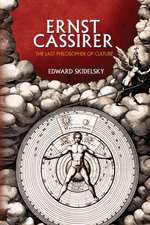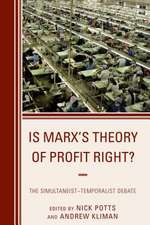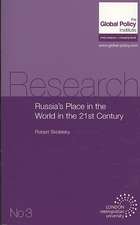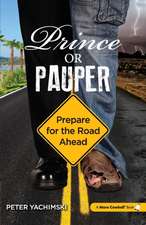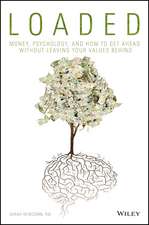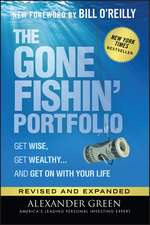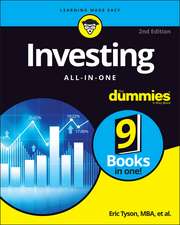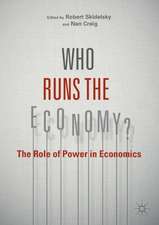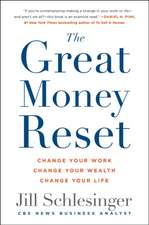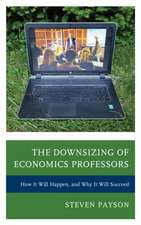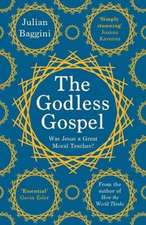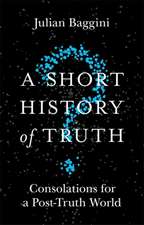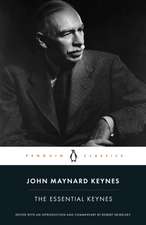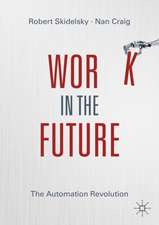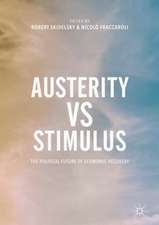How Much is Enough?: Money and the Good Life
Autor Edward Skidelsky, Robert Skidelskyen Limba Engleză Paperback – 4 sep 2013
Robert and Edward Skidelsky argue that wealth is not - or should not be - an end in itself, but a means to 'the good life'. Tracing the concept from Aristotle to the present, they show how far modern life has strayed from that ideal. They reject the idea that there is any single measure of human progress, whether GDP or 'happiness', and instead describe the seven elements which, they argue, make up the good life, and the policies that could realize them.
ROBERT SKIDELSKY is Emeritus Professor of Political Economy at the University of Warwick. His biography of Keynes received numerous prizes, including the Lionel Gelber Prize and the Council on Foreign Relations Prize for International Relations. He was made a life peer in 1991, and a Fellow of the British Academy in 1994.
EDWARD SKIDELSKY is a lecturer in the Philosophy Department of the University of Exeter. He contributes regularly to theNew Statesman,SpectatorandProspect. His previous books includeThe Conditions of GoodnessandErnst Cassirer: The Last Philosopher of Culture.
| Toate formatele și edițiile | Preț | Express |
|---|---|---|
| Paperback (2) | 57.81 lei 24-30 zile | +19.91 lei 4-10 zile |
| Penguin Books – 4 sep 2013 | 57.81 lei 24-30 zile | +19.91 lei 4-10 zile |
| Other Press (NY) – 19 aug 2013 | 134.84 lei 3-5 săpt. |
Preț: 57.81 lei
Preț vechi: 69.41 lei
-17% Nou
Puncte Express: 87
Preț estimativ în valută:
11.06€ • 11.51$ • 9.13£
11.06€ • 11.51$ • 9.13£
Carte disponibilă
Livrare economică 27 martie-02 aprilie
Livrare express 07-13 martie pentru 29.90 lei
Preluare comenzi: 021 569.72.76
Specificații
ISBN-13: 9780241953891
ISBN-10: 0241953898
Pagini: 272
Dimensiuni: 129 x 198 x 16 mm
Greutate: 0.2 kg
Editura: Penguin Books
Colecția Penguin
Locul publicării:London, United Kingdom
ISBN-10: 0241953898
Pagini: 272
Dimensiuni: 129 x 198 x 16 mm
Greutate: 0.2 kg
Editura: Penguin Books
Colecția Penguin
Locul publicării:London, United Kingdom
Notă biografică
Robert
Skidelsky
is
Emeritus
Professor
of
Political
Economy
at
the
University
of
Warwick.
His
three
volume
biography
of
John
Maynard
Keynes
(1983,
1992,
2000)
received
numerous
prizes,
including
the
Lionel
Gelber
Prize
for
International
Relations
and
the
Council
on
Foreign
Relations
Prize
for
International
Relations.
He
was
made
a
life
peer
in
1991,
and
aFellow
of
the
British
Academy
in
1994.
Edward Skidelsky is a lecturer in philosophy at the University of Exeter. He is author ofErnst Cassirer: The Last Philosopher of Cultureand contributes regularly to theNew StatesmanandProspect. He is currently working on a book entitledThe Language of the Virtues.
Edward Skidelsky is a lecturer in philosophy at the University of Exeter. He is author ofErnst Cassirer: The Last Philosopher of Cultureand contributes regularly to theNew StatesmanandProspect. He is currently working on a book entitledThe Language of the Virtues.
Recenzii
A
crisp
and
pungent
book
"How much is enough?" is a good question. Anyone who sets store by capitalism and markets will find [this] book uncomfortable reading. It should be read all the same
A truly innovative and radical perspective on reshaping the economy ... thought-stirring and extremely refreshing
A welcome call to reinvigorate society's ethical aspect and bring about the good life for everyone
In their thoughtful book, the Skidelskys move seamlessly from the abstract to the concrete; from philosophy to public policy. They note that Keynes's futuristic essay was ignored as the world sank into the Great Depression. Will we again ignore this call to imagine a better future?
"How much is enough?" is a good question. Anyone who sets store by capitalism and markets will find [this] book uncomfortable reading. It should be read all the same
A truly innovative and radical perspective on reshaping the economy ... thought-stirring and extremely refreshing
A welcome call to reinvigorate society's ethical aspect and bring about the good life for everyone
In their thoughtful book, the Skidelskys move seamlessly from the abstract to the concrete; from philosophy to public policy. They note that Keynes's futuristic essay was ignored as the world sank into the Great Depression. Will we again ignore this call to imagine a better future?
